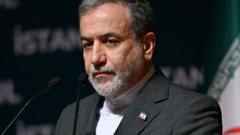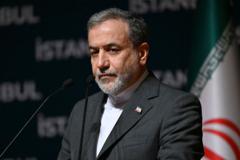In a move that risks destabilizing a fragile truce, Israel's Defense Minister Israel Katz announced plans to maintain military pressure on Iran, focusing on preventing missile and nuclear advancements.
Israel's Defense Minister Asserts Ongoing Military Strategy Against Iran

Israel's Defense Minister Asserts Ongoing Military Strategy Against Iran
Israel Katz declares commitment to 'policy of enforcement' to thwart Iranian advancements despite recent cease-fire.
Israeli Defense Minister Israel Katz has reaffirmed a stringent military strategy against Iran, indicating that the country will continue its offensive measures even amid a recent cease-fire agreement. Katz's comments underscore Israel's determination to counter Iranian advancements in missile technology and nuclear capabilities, raising concerns over the stability of a truce that had only recently been established following a prolonged period of conflict.
On a Thursday evening broadcast with local media, Katz emphasized that Israel is finalizing what he termed an “enforcement policy” aimed at ensuring military dominance. He stated, “We have the determination to implement it: preserving aerial superiority, preventing the advancement of nuclear projects and preventing the advancement of threatening long-range missiles.” Such broad interpretations of perceived threats from Iran pose a significant risk to the newly brokered truce, which was established following a 12-day conflict. This conflict drew partial U.S. involvement, highlighted by targeted airstrikes on Iranian nuclear facilities.
Iran’s Foreign Minister has already signaled a stern warning regarding the potential repercussions of any actions that might be seen as violations of the cease-fire. As tensions remain high, the international community watches closely to see how both nations navigate this precarious situation. With calls for diplomatic resolutions persisting, the commitment to military enforcement by Israel could catalyze further escalations in the region.
On a Thursday evening broadcast with local media, Katz emphasized that Israel is finalizing what he termed an “enforcement policy” aimed at ensuring military dominance. He stated, “We have the determination to implement it: preserving aerial superiority, preventing the advancement of nuclear projects and preventing the advancement of threatening long-range missiles.” Such broad interpretations of perceived threats from Iran pose a significant risk to the newly brokered truce, which was established following a 12-day conflict. This conflict drew partial U.S. involvement, highlighted by targeted airstrikes on Iranian nuclear facilities.
Iran’s Foreign Minister has already signaled a stern warning regarding the potential repercussions of any actions that might be seen as violations of the cease-fire. As tensions remain high, the international community watches closely to see how both nations navigate this precarious situation. With calls for diplomatic resolutions persisting, the commitment to military enforcement by Israel could catalyze further escalations in the region.






















